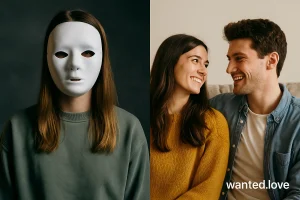
Summer offers a natural pause for introspection. Long evenings encourage journaling on balconies, solo road trips invite playlist‑scored contemplation, and oceanside walks create mental space. wanted.love harnesses this reflective energy by prompting newcomers to complete verification. The act of filming a short introduction video or submitting a secure document forces a mini self‑inventory: What do I want to say about myself? What image truly represents me?
Maria, a nurse from Porto, nearly abandoned verification when the camera highlighted what she considered her “chipmunk cheeks.” Then she asked herself: Do I want a partner who dislikes my smile? That question alone sparked a self‑compassion journey. By the time her verification was approved, she no longer hid behind angle‑tricks. Three months later, she met Hugo—who fell for her joyful grin.
Verification also equips us against manipulation. Romance fraud relies on cognitive overload—bombarding targets with affection to bypass critical thinking. But self‑aware individuals notice when emotion gallops faster than context. They ask clarifying questions, check inconsistencies, and value platforms that verify identities before deeper vulnerability.
Therapist Dr. Alexandra Solomon advocates “relational self‑awareness,” treating each interaction as feedback. Verified environments accelerate this learning because every data point represents a real person, not a bot or scammer. When a conversation fizzles, you can analyze authentic signals rather than dismissing the whole experience as fake.
Finally, self‑reflection nurtures resilience. Rejection stings less when you’ve already affirmed your worth. Verified status underlines that affirmation externally: I believe in myself enough to stand publicly behind my profile. That confidence radiates, attracting partners drawn to emotional steadiness.

